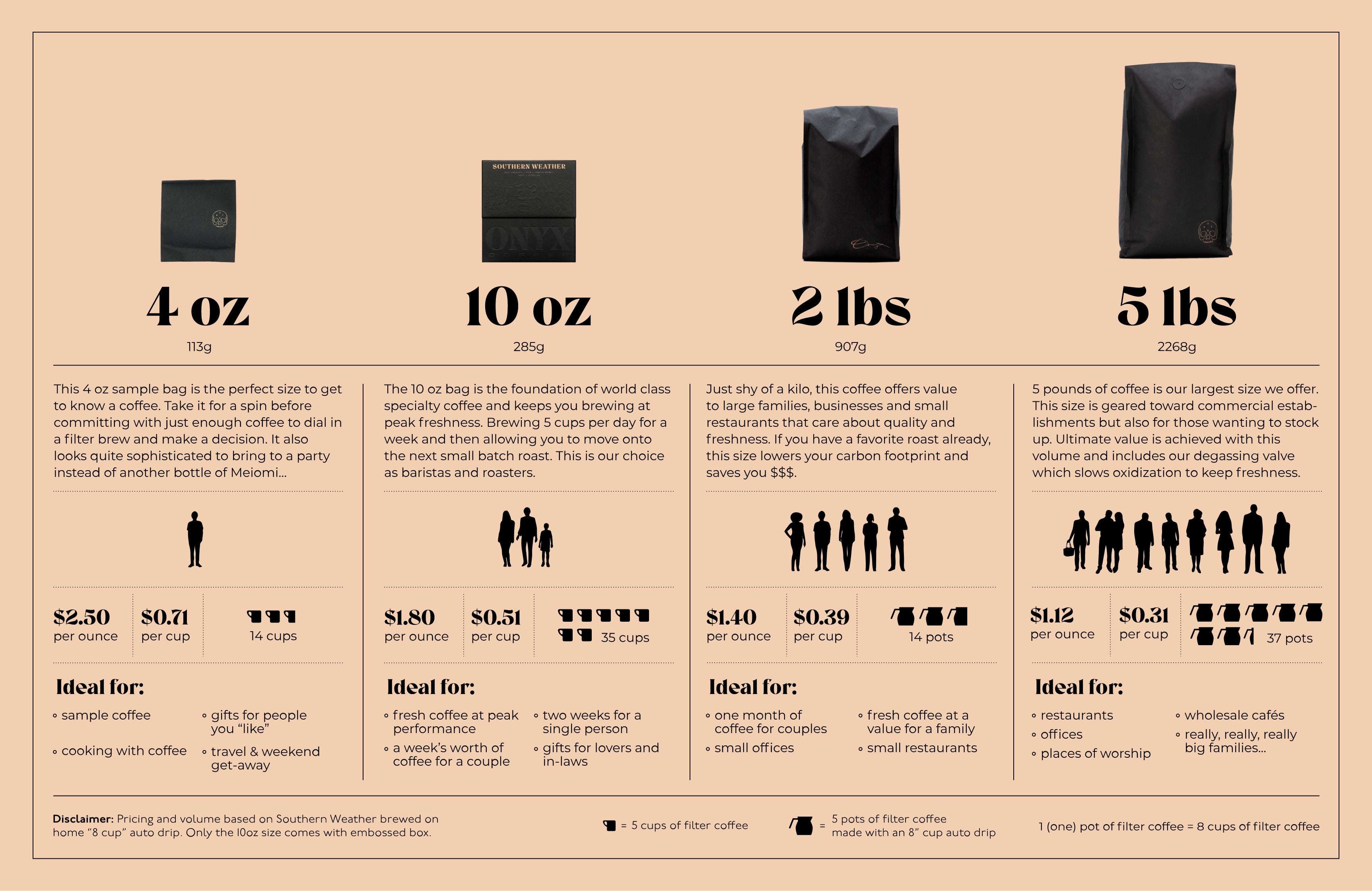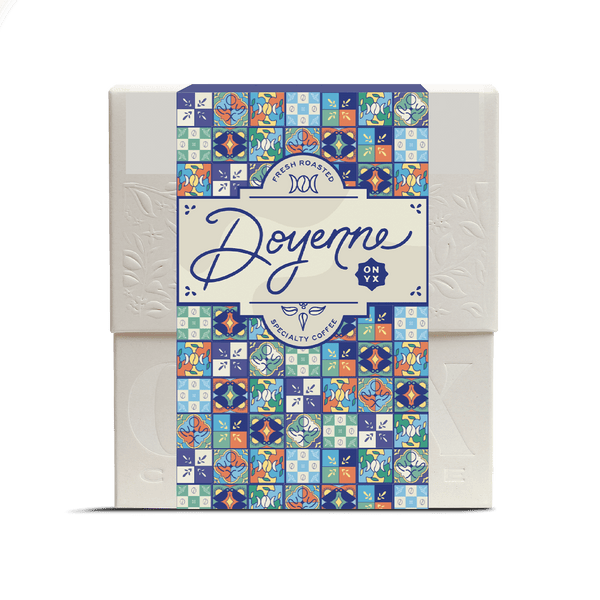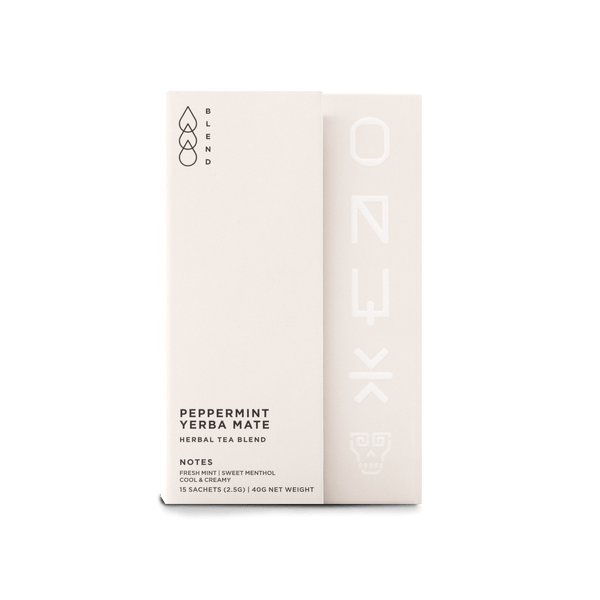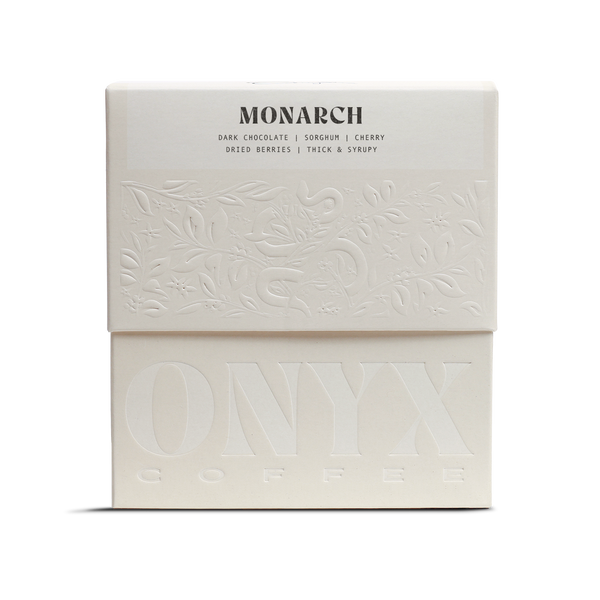Story
Peru, in terms of coffee production, is fascinating. And not the in the hyperbolic, modern over-usage of the word, but very truly fascinating. By its very nature, a vast majority of coffee cultivation within Peru is organic. This deep cultural practice comes from a respect of the Earth, and as stewards, coffee producers practice what has been done over decades. Often this means sacrificing yield over practice, as farms operate more as polycultures and sustenance producers, much different than the monoculture large-scale farming practices of close neighbored Brazil. Practicing this land stewardship often produces extremely high quality coffee, as the soil yields in terms of what is it given- much the case in this coffee. Far in the North of Peru, we have begun work with a group of producers known as os Mujeres Resilients de PAWQARA. This project engages with female coffee producers, seeking empowerment and better pricing through the specialty coffee market. With the volume of this project being small, the traceability from farmer to farmer has been a challenge, as this project is in it's infancy. This micro-lot produced by Rosabelle Heredia Bernales is a perfect example of what we seek within the Doyenne program- empowerment of female coffee producers through pricing premiums in lesser-known areas of production. Even as we roast and serve these coffees, we are beginning planning for the upcoming season of production, where we plan to visit this group, ensuring this program will thrive in the future.
WASHED PROCESSED COFFEES
The washed process began less so with the intention of influencing flavor, and more so with the intent of creating an easy-to-dry ubiquitous product that will reduce risk. This process has maintained popularity for its influence on the final cup- coffees processed as ‘washed’ are typically more in line with what consumers expect coffee to taste like. Washed process coffees are celebrated for their high perceived clarity, as well as for a balance in fruit characteristics and acidity, but it is not always that simple. The process of removing the outer layer of fruit once a coffee cherry is, and has been, fairly simple. The post-harvest processing begins the moment the coffee cherries are picked. The cherries are usually inspected, with an initial quick round of hand-sorting, separating the defective coffees before placing them into the hopper of the machine. There are various methods used to remove the outer layer of mucilage from the cherries, the most common machines utilize friction to remove the thin layer of fruit skin from the cherry, followed by a formal fermentation phase meant to break down the sticky fruit layer. During this fermentation, a microbial de-mucilagation takes place, which allows the outer fruit and pectin layer to break down, making the coffee easier to dry. This fermentation process has a wild amount of variability depending on the facility, preferences of the producer, and cultural practice. Additions of water as lubrication through the machine are made most of the time, with an optional underwater fermentation. (Some forgo this, choosing to ferment dry.) Typical times for this post-depulp fermentation are 12-36 hours. This phase also crucially alters the organic acids within the coffee, as sugars and organic acids are transformed, with the best-washed coffees maintaining their complex fruit esters. Once the formal fermentation time is complete, the parchment-sheathed seeds are emptied into some type of washing channel, where they are agitated with rakes or paddles to remove the last of the fruit layer. During this step, the water is refreshed to ensure its capability of separating the fruit layer from the seed. Once the washing is complete, the coffee is taken to some type of drying facility to prepare it for exportation and storage.
While the terms we use to describe specialty coffee processing have stayed static, the methods used for post-harvest processing have adapted to not only now solve the problem of removing the outer sticky layer of fruit from the seed, but many producers now see this as an opportunity to influence the final taste profile of the cup. Seeing this final cup as malleable has led producers to use post-harvest processing to influence flavor through the control of variables. Outside of the well-known variable of the level of fruit left in contact with the seed over the drying, there are now a whole host of data points to monitor, even within the ubiquitous description of ‘washed processed.’ There are levels of fermentation, as we assume the level of fruit left on within this washed description is fixed. (at or near zero, after depulp, which we will discuss later.) The variables adjusted to add value while transforming the final cup are as follows: time, environment, and additives. Environment and time are closely tied, as certain fermentations will have a greater effect as the temperature increases in the given environments. Some producers have now taken on a less-than-passive approach when it comes to the environment, choosing to allow oxidation to take place, or by restricting the contact of oxygen to the seeds. (What we in the industry incorrectly call “anaerobic fermentation.) This variability in the environment is also sometimes coupled with an addition of yeast, fruit, spices, or even organic acids as inoculants or catalysts for reactions. As the world of post-harvest processing continues to shift and innovate, we strive to better understand and articulate the way the final cup has been shaped with better descriptors for the process.





